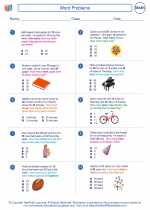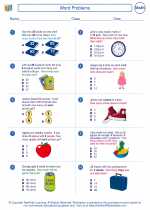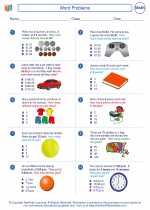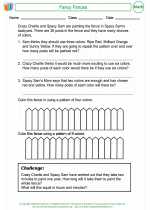Commutative Property
The commutative property is a fundamental concept in mathematics that applies to addition and multiplication. The property states that the order of the numbers does not change the result when adding or multiplying them.
For addition, the commutative property can be stated as: a + b = b + a. In other words, the sum of two numbers remains the same regardless of the order in which they are added.
For multiplication, the commutative property can be stated as: a * b = b * a. This means that the product of two numbers remains the same regardless of the order in which they are multiplied.
It's important to note that the commutative property does not apply to subtraction or division. This property is a foundational concept in arithmetic and is used to simplify calculations and solve mathematical problems.
[Commutative Property] Related Worksheets and Study Guides:
.◂Math Worksheets and Study Guides Third Grade. Word Problems

 Activity Lesson
Activity Lesson
 Activity Lesson
Activity Lesson
 Activity Lesson
Activity Lesson
 Worksheet/Answer key
Worksheet/Answer key
 Worksheet/Answer key
Worksheet/Answer key
 Worksheet/Answer key
Worksheet/Answer key
 Worksheet/Answer key
Worksheet/Answer key
 Worksheet/Answer key
Worksheet/Answer key
 Worksheet/Answer key
Worksheet/Answer key
 Worksheet/Answer key
Worksheet/Answer key
 Worksheet/Answer key
Worksheet/Answer key
 Worksheet/Answer key
Worksheet/Answer key
 Worksheet/Answer key
Worksheet/Answer key
 Worksheet/Answer key
Worksheet/Answer key
 Worksheet/Answer key
Worksheet/Answer key
 Worksheet/Answer key
Worksheet/Answer key
 Worksheet/Answer key
Worksheet/Answer key
 Worksheet/Answer key
Worksheet/Answer key
